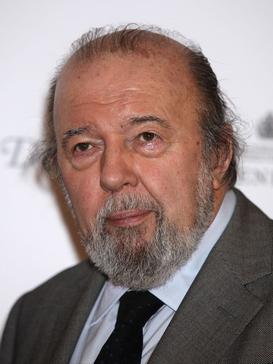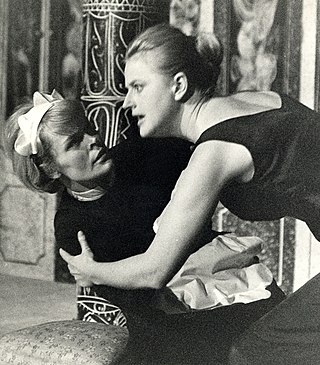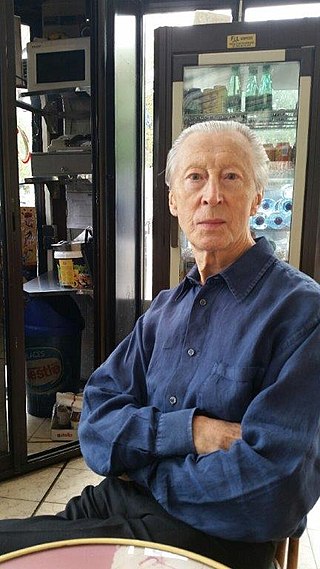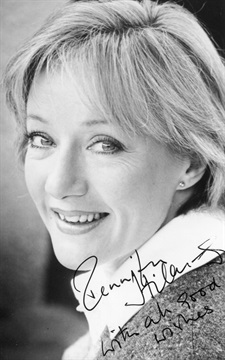Related Research Articles

Sir Michael Scudamore Redgrave CBE was an English actor, director, producer, screenwriter, manager and author. He received a nomination for the Academy Award for Best Actor for his performance in Mourning Becomes Electra (1947), as well as two BAFTA nominations for Best British Actor for his performances in The Night My Number Came Up (1955) and Time Without Pity (1957).

Joan Maud Littlewood was an English theatre director who trained at the Royal Academy of Dramatic Art, and is best known for her work in developing the Theatre Workshop. She has been called "The Mother of Modern Theatre". Her production of Oh, What a Lovely War! in 1963 was one of her more influential pieces.

Sir Peter Reginald Frederick Hall CBE was an English theatre, opera and film director. His obituary in The Times declared him "the most important figure in British theatre for half a century" and on his death, a Royal National Theatre statement declared that Hall's "influence on the artistic life of Britain in the 20th century was unparalleled". In 2018, the Laurence Olivier Awards, recognizing achievements in London theatre, changed the award for Best Director to the Sir Peter Hall Award for Best Director.

The Maids is a 1947 play by the French dramatist Jean Genet. It was first performed at the Théâtre de l'Athénée in Paris in a production that opened on 17 April 1947, which Louis Jouvet directed.

Dilys Laye was an English actress and singer, best known for her comedy roles, in which she was seen in the West End and on Broadway for more than fifty years, beginning in 1951. Although primarily a stage performer, she broadcast frequently on radio and television, and appeared in films.

Anthony Rodgers was an English actor and occasional director. He performed on stage, in film, in television dramas and sitcoms. He starred in several sitcoms, including Fresh Fields, its sequel French Fields, and May to December.

Leeds Playhouse is a theatre in the city centre of Leeds, West Yorkshire, England. It opened in 1990 in the Quarry Hill area of the city as the West Yorkshire Playhouse, successor to the original Leeds Playhouse, and was rebranded in June 2018 to revert to the title "Leeds Playhouse". It has two auditoria and a studio space, hosts a wide range of productions, and engages in outreach work in the local community.

Benjamin Arthur Flemyng, known professionally as Robert Flemyng, was a British actor. The son of a doctor, and originally intended for a medical career, Flemyng learned his stagecraft in provincial repertory theatre. In 1935 he appeared in a leading role in the West End, and the following year had his first major success, in Terence Rattigan's comedy French Without Tears. Between then and the Second World War he appeared in London and New York in a succession of comedies.

José Benjamín Quintero was a Panamanian theatre director, producer and pedagogue best known for his interpretations of the works of Eugene O'Neill.
Charles Gerald Wood was a playwright and scriptwriter for radio, television, and film. He lived in England.

Murray Melvin was an English actor. He was best known for his acting work with Joan Littlewood, Ken Russell and Stanley Kubrick. He was the author of two books: The Art of Theatre Workshop (2006) and The Theatre Royal, A History of the Building (2009).

Frank Dudley Foster was an English actor who regularly appeared in television roles.
Colin George was a Welsh actor and director, who was the founding Artistic Director of the Crucible Theatre in Sheffield (1971).
Henry Livings was an English playwright and screenwriter, who worked extensively in British television and theatre from the 1960s to the 1990s.

Jennifer Mary Hilary was a British actress of stage, film and television. Her first acclaimed stage performance was as "Milly" in Henry James' The Wings of the Dove, which marked her debut in the West End.
Diana Barrington is a British actress. She studied drama at the Royal Academy of Dramatic Art. She was married to Canadian actor Ken Pogue until his death in 2015.
Louis Lacy Clinton Kimbrough was an actor from the United States.

The Complaisant Lover is a 1959 comedy play by Graham Greene. Consisting of two acts, each of two scenes, the play revolves around an affair between Mary Rhodes and Clive Root, the book seller friend of her husband, Victor. The play takes place in the Rhodes family home and an Amsterdam guesthouse.
Valentine Gilbert Delabere "Val" May, CBE was an English theatre director and artistic director. He led the Bristol Old Vic from 1961 to 1975, and the Yvonne Arnaud Theatre from 1975 to 1992.

Frederick Walter James Peisley was a British stage, film and television actor and theatre director whose career spanned five decades. He is known for The Secret of the Loch (1934), Gentlemen's Agreement (1935) and Murder at the Cabaret (1936). His later career was mostly in television.
References
- ↑ "Alan Vaughan Williams". The Stage . No. 4109. January 14, 1960. p. 21.
- ↑ "Alan Vaughan Williams Welcomed At Lincoln". The Stage . No. 4246. August 30, 1962. p. 16.
- ↑ John O'Callaghan (8 May 1963). "Pardon My Language at Lincoln". The Guardian . p. 7.
- ↑ "SUCCESS OF LINCOLN'S 'ROSS'". The Stage . No. 4254. October 25, 1962. p. 9.
- ↑ "NEAR-CAPACITY HOUSES AT LINCOLN". The Stage . No. 4258. November 22, 1962. p. 16.
- ↑ L. G. S. (August 15, 1963). "ON THIS WEEK: Lincoln". The Stage . No. 4296. p. 16.
- ↑ L. G. S. (September 19, 1963). "ON THIS WEEK: ROTHERHAM". The Stage . No. 4301. p. 16.
- ↑ "On This Week: LINCOLN". The Stage . No. 4332. April 23, 1964. p. 23.
- ↑ "On This Week: LOUGHBOROUGH". The Stage . No. 4341. June 25, 1964. p. 16.
- ↑ "Littlewood Show at Lincoln". The Stage . No. 4389. May 27, 1965. p. 17.
- ↑ "'Doctor in the House'". The Stage . No. 4399. August 5, 1965. p. 16.
- ↑ "REPERTORY: Repertoire Rep success at Birmingham". The Stage . No. 4396. July 15, 1965. p. 16.
- ↑ Cordelia Oliver (12 September 1966). "THE LITTLE WOMAN at the Traverse, Scotland". The Guardian . p. 7.
- ↑ Robert Waterhouse (24 January 1968). "THE COMPLAISANT LOVER at Liverpool Playhouse". The Guardian . p. 6.
- ↑ Gillian Reynolds (29 May 1968). "THE PROMISE at the Liverpool Playhouse". The Guardian . p. 6.
- ↑ Catherine Stott (23 January 1970). "Review: Greenwich Theatre, The Rough and Ready Lot". The Guardian . p. 8.
- ↑ "CHRISTMAS SHOWS: LINCOLN". The Stage . No. 4369. January 7, 1965. pp. 26–27.
- ↑ Otis L. Guernsey (1972). "JACK AND THE BEANSTALK by Alan Vaughan Williams". The Best Plays of 1971-1972. Dodd, Mead & Co. p. 102.
- ↑ Tony Curtis (1986). Wales, the Imagined Nation: Studies in Cultural and National Identity. Poetry Wales Press. p. 252. ISBN 9780907476535.